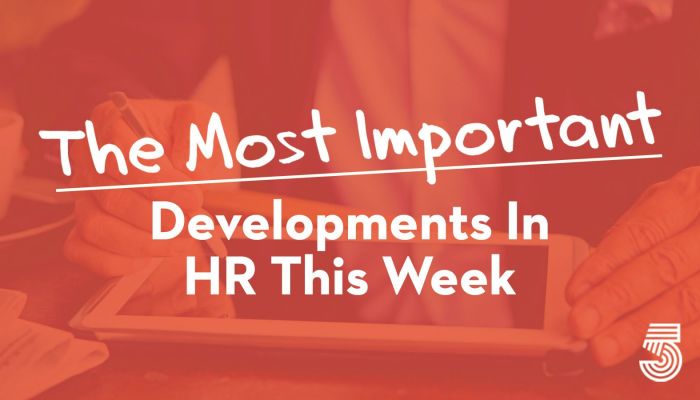The M.I.D., as we call it, is curated by our editorial team from more than 50 news sources. Like a lot of good ideas, this started as something I wanted for myself. If I can’t read everything, I at least want to stay abreast of the most important developments.
This week in HR, SHRM acquired a leadership development firm and productivity or the lack thereof was on everyone’s minds. Bersin said CEOs don’t believe employees are working so hard they’re burning out, HR was found guilty of promoting working harder = working longer (uh-oh), the four-day workweek is doing great across the pond, and HBR took on some WFH myths.

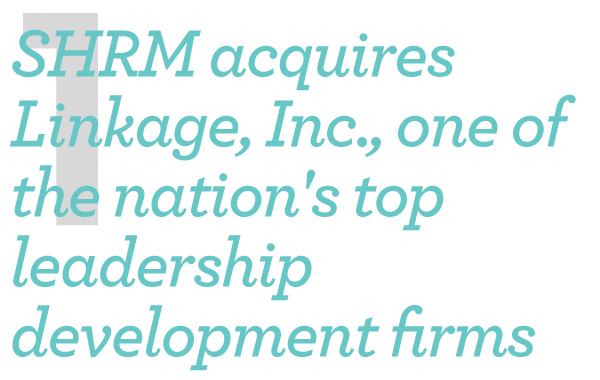
The Society for Human Resource Management (SHRM) announced yesterday that it has acquired Linkage Inc., a Boston-based global leadership development firm that focuses on advancing women and accelerating inclusion for executives, managers, and organizations. “We are thrilled to officially welcome Linkage Inc. as a part of SHRM,” said Johnny C. Taylor, Jr., SHRM-SCP, president and chief executive officer of SHRM. “This acquisition strengthens SHRM’s position as the go-to global organization for all things work, workers, and the workplace and will provide HR professionals with world-class leadership development, as well as critical resources to help navigate workplace challenges.” SHRM members will gain access to members-only pricing for research-based leadership development programming designed to help them solve their organizations’ talent challenges, including retention and advancement of female leaders. They also will have access to new tools and resources to build an actionable leadership development and inclusion strategy that will help drive talent goals and develop more inclusive leaders. SHRM

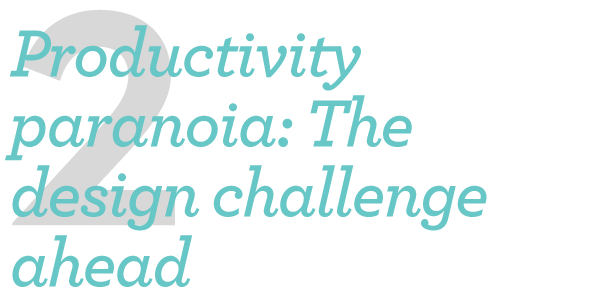
Last week Microsoft’s Work Trend Index discovered a profound problem at work: While 87% of employees believe they are highly productive, only 12% of CEOs agree. This is a staggering finding. While employees work harder than ever, CEOs simply do not believe it. Microsoft believes this is a symptom of hybrid work, but I think it’s a little more complex. Let me try to explain. The Microsoft research, which includes surveys and data from the Microsoft Graph, found that people are very busy: Employee meetings increased by 153% and double-booked meetings increased by 46%. In fact they are too busy. Mercer’s research finds that 81% of employees are “burned out” and most companies I talk with tell me people are so busy they aren’t ready for the office. Most studies show that employee-perceived productivity has skyrocketed during the pandemic. Why don’t CEOs see this? Bersin

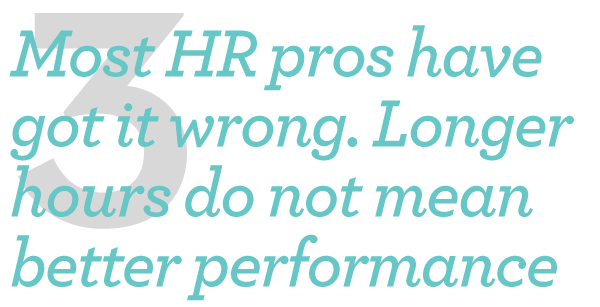
The phrase “hard work pays off” has to be one of the most popular nuggets of advice in the last century and beyond. This maxim has conditioned us to believe that the more we do something, the more we will be rewarded. However, there is growing evidence that shows this attitude is counter-productive. Moreover, overworking is dangerous. And most worryingly, over two-thirds (68%) of European human resources professionals are peddling the idea that high-performing employees work longer hours than average employees, according to a study by Gartner. Before revealing this statistic, during his keynote speech at Gartner ReimagineHR in London in September, Brian Kropp said: “This is the moment where I risk alienating everyone in this room because we collectively are part of the problem.” Much like HR professionals have an outdated, if unconscious, bias toward rewarding people who put in more hours, Kropp argued that recovery should not be frowned upon. “Rest is not the absence of performance; it is part of performance,” he said. Gartner’s research indicated the value of proactive rest. Over a fifth (22%) of organizations that don’t provide this have employee burnout, compared with just 2% of those that do. Worklife

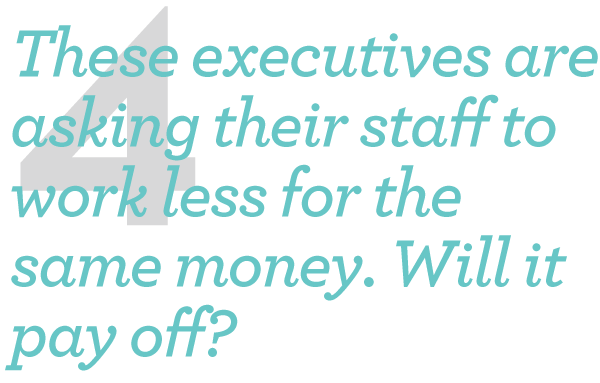
It wasn’t hard for Samantha Losey, managing director of Unity, a public relations firm in London, to convince her team to work fewer hours for the same paycheck. But it was an uphill battle to persuade her own board to join the world’s biggest pilot of the four-day work week. The main concern centered on whether a 20% cut to weekly working hours would lead to a drop in output, and cause clients to flee. Unity is one of 70 companies in the United Kingdom participating in the trial. For six months starting in June, more than 3,300 employees have worked 80% of their usual hours — for the same rate of pay — in exchange for promising to deliver 100% of their usual work. Halfway into the pilot, 95% of companies say their productivity levels have either stayed the same or improved, while 86% say they are likely to make the routine permanent. Losey said her clients are happy with their performance, while her team is much more inspired and creative. Productivity was up 35% and staff said they were feeling healthier and happier, compared to before the trial. Now, people are scrambling to join the company. “We were dying at the beginning of the year trying to find talent and we were spending money on recruiters left, right, and center,” she said. But since Unity joined the program, Losey said she’s “never ever had so many applications,” saving the business a lot of money in recruitment costs. CNN Business
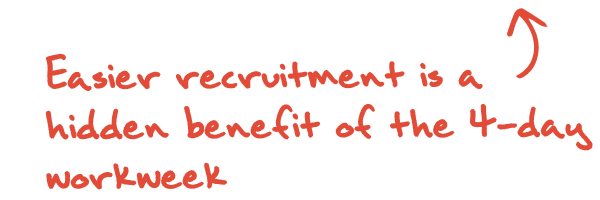
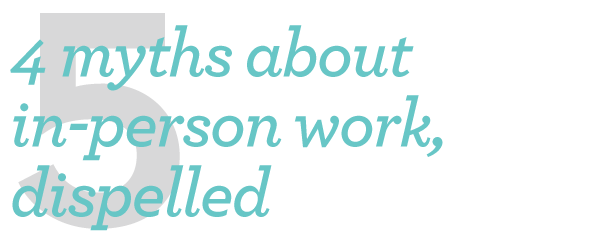
Employee engagement has reached frightening lows in just about every industry, which understandably has leaders deeply worried and looking for answers to see them through the Great Reshuffle. All of this trouble started, so the logic often goes, when the pandemic forced many into remote work and we stopped being together. Surely bringing people back to working side by side and returning to in-person gatherings like learning events is the magical solution. Right? Not quite. For starters, surveys consistently show that people are looking for more flexibility and choice about where they work, not less. The ability to work remotely has become more valued than ever before, and that’s not going away, particularly given that these trends are significantly stronger among younger workers. HBR






